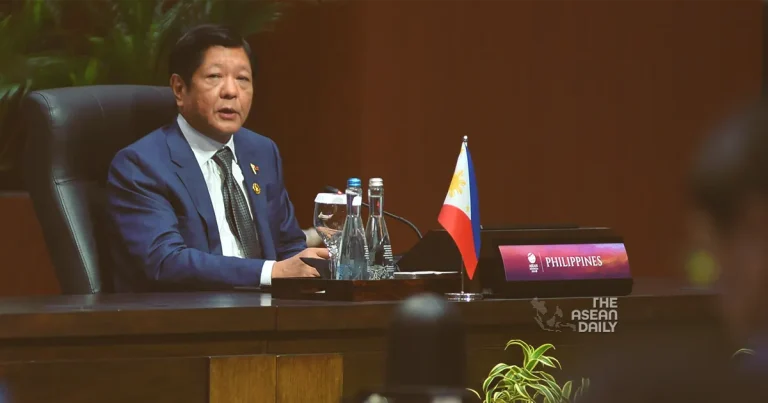18-12-2023 (MANILA) Philippine President Ferdinand Marcos Jr has expressed his country’s commitment to addressing “exploration issues” in the South China Sea in order to kickstart new energy exploration projects in the resource-rich waters. In an interview with Japanese media on December 16, President Marcos highlighted the escalating tensions in the region, cautioning that China’s increasingly assertive behavior poses a significant challenge to its neighboring Asian countries.
For decades, the Philippines and China have been entangled in a dispute over sovereign rights to exploit natural resources in the strategic South China Sea. However, progress in the discussions regarding joint exploration of oil and gas resources has been limited, according to a press release from President Marcos’s office during his attendance at a Tokyo summit with Japan and ASEAN.
“We are currently at an impasse,” stated President Marcos, underscoring his country’s entitlement to exploit energy reserves in the West Philippine Sea. The Philippines, aiming to reduce its dependence on fossil fuels and coal while transitioning to liquefied natural gas, refers to the portion of the South China Sea within its exclusive economic zone as the West Philippine Sea.
Efforts to find a legally viable method for cooperation in energy exploration have repeatedly faced obstacles, with previous administrations discontinuing talks in June 2022 due to constitutional constraints and issues of sovereignty. The collision between Philippine and Chinese vessels near a disputed shoal on December 10 further heightened tensions in the South China Sea, leading to accusations exchanged between Manila and Beijing.
Apart from the Philippines, other ASEAN members including Vietnam, Indonesia, Malaysia, and Brunei also lay claim to parts of the South China Sea, which China asserts nearly all of. This vital waterway facilitates over US$3 trillion (S$4 trillion) of annual ship-borne commerce.
In 2016, the Permanent Court of Arbitration ruled that China’s claims in the South China Sea had no legal basis, a verdict supported by Washington but rejected by Beijing.
President Marcos expressed his concerns about the increasing tensions and emphasized the necessity of peaceful resolution. He stressed the need for “new solutions” to address the challenges posed by China, pledging to safeguard his country’s rights in the South China Sea following the collision, which Manila has described as a “serious escalation.”




